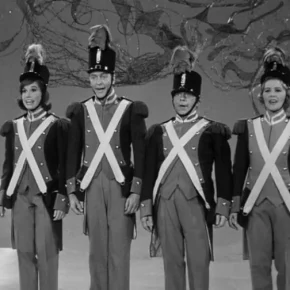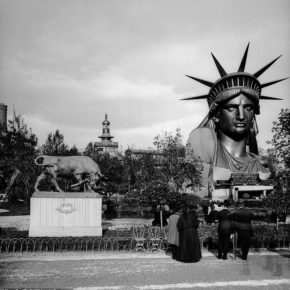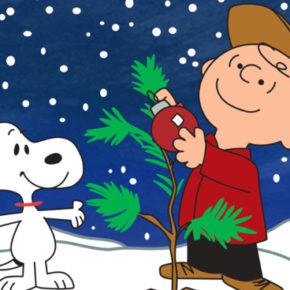Leave it to Sen. Obama (D-IL) to hammer home one of the key problems with BushCo and its approach to disaster preparedness:
“There’s been much attention in the press about the fact that those who were left behind in New Orleans were disproportionately poor and African American. I’ve said publicly that I do not subscribe to the notion that the painfully slow response of FEMA and the Department of Homeland Security was racially-based. The ineptitude was colorblind.
“But what must be said is that whoever was in charge of planning and preparing for the worst case scenario appeared to assume that every American has the capacity to load up their family in an SUV, fill it up with $100 worth of gasoline, stick some bottled water in the trunk, and use a credit card to check in to a hotel on safe ground. I see no evidence of active malice, but I see a continuation of passive indifference on the part of our government towards the least of these.”
– September 6, 2005
This is exactly what John Edwards spoke of in his abortive presidential campaign last year: there are two Americas, and the current administration is driving a wedge between the haves and have-nots that is only making things worse and setting us up for true domestic disaster. NOLA could be, in many ways, the tip of the iceberg.















James
7 September 2005 — 17:59
Actually, I believe Sen. Edwards put it best in his statement released in the aftermath of the hurricane. If you haven’t already, take a second to read his poignant words at the following link:
Two Americas by John Edwards
Or for the readers’ convenience, here’s the text of it:
Two Americas
By John Edwards
During the campaign of 2004, I spoke often of the two Americas: the America of the privileged and the wealthy, and the America of those who lived from paycheck to paycheck. I spoke of the difference in the schools, the difference in the loan rates, the difference in opportunity. All of that pales today. Today – and for many days and weeks and months to follow – we see a harsher example of two Americas. We see the poor and working class of New Orleans who don’t own a car and couldn’t evacuate to hotels or families far from the target of Katrina. We see the suffering of families who lived from paycheck to paycheck and who followed the advice of officials and went to shelters at the Civic Center or the Superdome or stayed home to protect their possessions.
Now every single resident of New Orleans, regardless of their wealth or status, will have terrible losses and life-altering experiences. Every single resident will know and care about someone who was lost to this hurricane. But some, ranging from the very poorest to the working class unable to accumulate a cushion of assets to rely upon on a very, very rainy day, will suffer the most because they simply didn’t have the means to evacuate. They suffered the most from Katrina because they always suffer the most.
These are Americans some of whom who left everything they possessed behind in order to save those they loved. These are Americans huddled with their children or pushing a wheelchair between rows of those too beaten or weak to stand. In this moment, we have to remember they are part of us, Americans who love their country and are part of our national community. In this moment, it is hard because our hair is clean and our clothes are washed and our eyes are not glazed with hopelessness. But these are our brothers and sisters, and we have to remember this not just for them, but for us. We must finally recognize that when any of us suffer, we are all weaker; it affects us all.
Commentators on television have expressed surprise, saying they think that most people didn’t know there was such poverty in America. Thirty-seven million Americans live in poverty, most of them are the working poor, but it is clear that they have been invisible. But if these commentators are right, this tragedy can have a great influence, if we listen to its message.
The people most devastated have always lived on a razor blade, afraid of any setback, any illness, any job loss that could disrupt the fragile balance they achieved paycheck to paycheck. They didn’t leave New Orleans because they couldn’t leave. Some didn’t leave their homes because they wanted to protect the hard-won possessions that made their lives a little easier.
The government released new poverty statistics this week. The number of Americans living in poverty rose again last year. Thirteen million children — nearly one in every five — lives in poverty. Close to 25 percent of all African Americans live in poverty. Twenty-three percent of the population in New Orleans lives in poverty. Those are chilling numbers. Because of Katrina, we have now seen many of the faces behind those numbers.
Poverty exists everywhere in America. It is in Detroit and El Paso. It is in Omaha, Nebraska and Stockton, California. It is in rural towns like Chillicothe, Ohio and Pine Bluff, Arkansas. Nearly half of the children in Detroit, Atlanta and Long Beach, California live in poverty. It doesn’t have to be this way. We can begin embracing policies that offer opportunity, reward responsibility, and assume the dignity of each American.
There are immediate needs in New Orleans and the Gulf Coast, and the first priority is meeting those, but after that, we need to think about the American community, about the one America we think we are, the one we talk about. We need people to feel more than sympathy with the victims, we need them to feel empathy with our national community that includes the poor. We have missed opportunities to make certain that all Americans would be more than huddled masses. We have been too slow to act in the face in the misery of our brothers and sisters. This is an ugly and horrifying wake-up call to America. Let us pray we answer this call. Now is the time to act.
Abby
8 September 2005 — 00:32
FEMA may not have been actively racist, but I don’t think you can say that no racism was revealed here. Did you see the photo captions? Black people loot while white people find food. The Onion had a great bit on this–even Andrew Sullivan picked up on it. Sully’s actually got some choice quotes up.